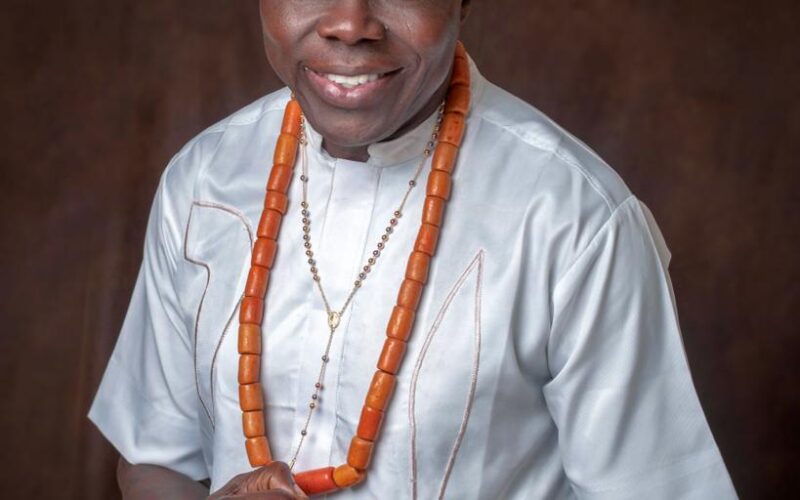I have listened to commentators and a few pastors discussing about polygamy whether it is a sin or not.
The argument became heated after a Nollywood actor, Yul Edochie, last week, announced that he married a second wife, named Judy Austin. Obviously, the announcement didn’t go down well with alot of people especially the Nigerian women.
According to Wikipedia, Polygamy is “the practice or custom of having more than one wife or husband at the same time.” Polygamy has been practiced by many cultures throughout history.
Although the Old Testament describes numerous examples of polygamy among devotees to God, most Christian groups have historically rejected the practice of polygamy and have upheld monogamy alone as normative. Nevertheless, some Christians groups in different periods have practiced, or currently do practice, polygamy.
Despite these nuances to the biblical perspective on polygamy, many important figures had more than one wife, such as in the instances of Esau (Gen 26:34; 28:6-9), Jacob (Gen 29:15-28),[7] Elkanah (1 Samuel 1:1-8), David (1 Samuel 25:39-44; 2 Samuel 3:2-5; 5:13-16), and Solomon (1 Kings 11:1-3).
John Colenso, the Anglican bishop of Natal, South Africa in 1853, was the first to write down the Zulu language. He championed the Zulu way of life, including plural marriage.
In Liberia, the Lutheran Church began allowing plural marriage in the 1970s.
The African instituted Harrist Church, started in 1913, permits those who are already living in polygamous marriages to convert and join it without having to renounce their multiple marriages.
Mswati III, the Christian king of Eswatini, has 15 wives.
Polygamy is a phenomenon often associated with African people. In almost all African societies, polygamy is an acceptable and valid form of marriage – in fact, monogamy has been associated with people of lower social status.
For instance, Ghana’s first president, Kwame Nkrumah, wrote in his autobiography that: “However unconventional and unsatisfactory this way of life may appear to those who are confirmed monogamists, and without in any way trying to defend my own sex, it is a frequently accepted fact that man is naturally polygamous.”
And following a law that would protect women in polygamous marriages in Tanzania in the 1970s, male deputies protested saying: “if a man has to get his wife’s consent to a second marriage, the African tradition where man has always been superior to a woman will be endangered.” (source)
In more modern times, President Jacob Zuma of South Africa has defended the tradition in similar terms, saying that it’s better than cheating (which, he has nevertheless also managed to do).
Status not sex
Yet even if natural urges are the reason men might choose polygamy today – which I doubt, considering it would take an admirably virile man to keep an amount of women sexually satisfied – historically the sexual aspect was hardly the most relevant. Furthermore, women also have natural urges.
People tell us to accept lesbians and gay in a society and they condemn polygamy.
The truth is that polygamy was to do with status and wealth. The more wives a man had the more his wealth grew. Why? Because it was women and their children who worked the land. That is also why, contrary to popular belief, monogamy was equally common in precolonial Africa if not by choice. As historian Samuel Johnson writes in his seminal book, only the wealthy can avail themselves of the luxury of polygamy.
Even for women, polygamy in ancient times was not always disadvantageous. Through polygamous marriages women in precolonial Africa often had greater personal autonomy. As new wives joined a compound, older ones could focus on their trading. And successful women traders, such as the Iyalodes in Yorubaland, had a lot of power. While autonomous female traders are traditionally linked to West Africa, studies have found a long history of women’s trading also in places such as among the Kikuyu in Kenya as well as groups in Uganda and Zambia.
Also, women could take lovers that would pay husbands for the “loan”, if the husband allowed it – which some would if the wife was not the first or last.
In Guinea, albeit during colonial rule, in order to escape nagging husbands and join the independence struggles, women went so far as to acquire wives for their husbands as explained in “Emancipate your husbands“.
Of course, whatever autonomy polygamy afforded back then, it was subsumed by colonialism and the rise of puritanical missionary teaching.
What about love?
I’m sure that what we today describe as romantic love could be found in polygamous homes. Humans are biologically predisposed to feel romantic love. But since couples in love would run away from their parents to be together to avoid polygamous marriages it seems likely that it was not the norm. There are accounts of missionaries “rescuing” a woman being kidnapped only to learn that it was staged. It was in fact the woman’s boyfriend “kidnapping” her so that they could escape the inevitability of her ending up in a polygamous marriage.
Polygamy has far from disappeared. From President Zuma to village heads in Zimbabwe to my own granddad (who married four women), polygamy is part of the fabric of African life.
I don’t think polygamy should be illegal. As long as our societies are marked by both poverty and patriarchy, it will continue. Women still depend on men financially and social norms entitle men to dominant roles. (Of course, I wish both poverty and patriarchy would end.) And I certainly think that as long as polygamy is legal, women should also be able to marry more than one man. Also, some people might be genuinely happy practising polygamy.
God spoke about multiplication in the Book of Genesis Chapter one verse twenty eight 1:28, KJV: And God blessed them, and God said unto them, Be fruitful, and multiply, and replenish the earth, and subdue it: and have dominion over the fish of the sea, and over the fowl of the air, and over every living thing that moveth upon the earth.
What does Genesis 1:28 mean?
After creating humans as male and female in the previous verse, God pronounces His blessing on these first people who are made in His image. Built into the blessing is the capacity to reproduce new generations of human beings—and the command to do so.
God gives four instructions: Be fruitful (or “bear fruit,” have babies). Multiply (as each new generation has more kids and they have more kids). Fill the earth (populate). Have dominion (or authority and management) over all the other creatures.
These commands frame many important aspects of a Christian worldview. One crucial point to note is that the commands to reproduce and multiply came prior to the fall of man in Genesis chapter 3. In blunt terms, this means that God created mankind with the capacity for sex, and sexual reproduction, and intended us to utilize those abilities. Sex, therefore, is not sinful in and of itself. Of course, like all good things, sex has a proper context: marriage. And yet, this simple point—that God created us as intentionally sexual creatures—speaks against the recurring myth that the Bible considers sex itself to be morally wrong.
As explained in Genesis chapter 2, God would directly create only two humans. The rest of us would come from them, one generation after the next. Humankind’s first responsibilities would be to fill up the earth with people and to care for the earth as God’s representatives.
Context Summary
Genesis 1:26–31 describes the origin of human beings, the most unique of all God’s creations. As with other aspects of the creation account, very few details are given. The information we are given, however, is unmistakable. Man is uniquely created ”in the image” of God, invested with authority over the earth, and commanded to reproduce. These points each establish critical aspects of the Christian worldview, and the proper attitude towards humanity. As with other portions of this chapter, debates over certain details do not override the central truth: man is the purposeful creation of the One True God, and represents something special in this universe as a result.
Let me again say, assuming in this context we are talking about multiplication as in the Kingdom of God, men who got married to more than a wife in the African settings, do we block them from being born again or do we tell them to unmarry their wives to fit in?
Christ Himself preached about love and doing good to others “A new command I give you: Love one another. As I have loved you, so you must love one another. By this everyone will know that you are my disciples, if you love one another” (John 13:34-35).
Why Are We Called to Love One Another?
The short and simple answer to why we are called to love one another is found in John 13:35. It reads “by this everyone will know that you are my disciples, if you love one another.”
So, instead of worrying about whether polygamy is a sin or not, Christ promoted love as his greatest commandment which every believer should follow.
Christ didn’t say girls should be sleeping with dogs for money and politicians should steal public funds. Polygamy didn’t say Pastors and Imams should be extorting from their congregations and promote false prophecy. Polygamy is better than sleeping with other people’s wives and women giving another man someone’s child.
Polygamy is not cheating but legitimate.




